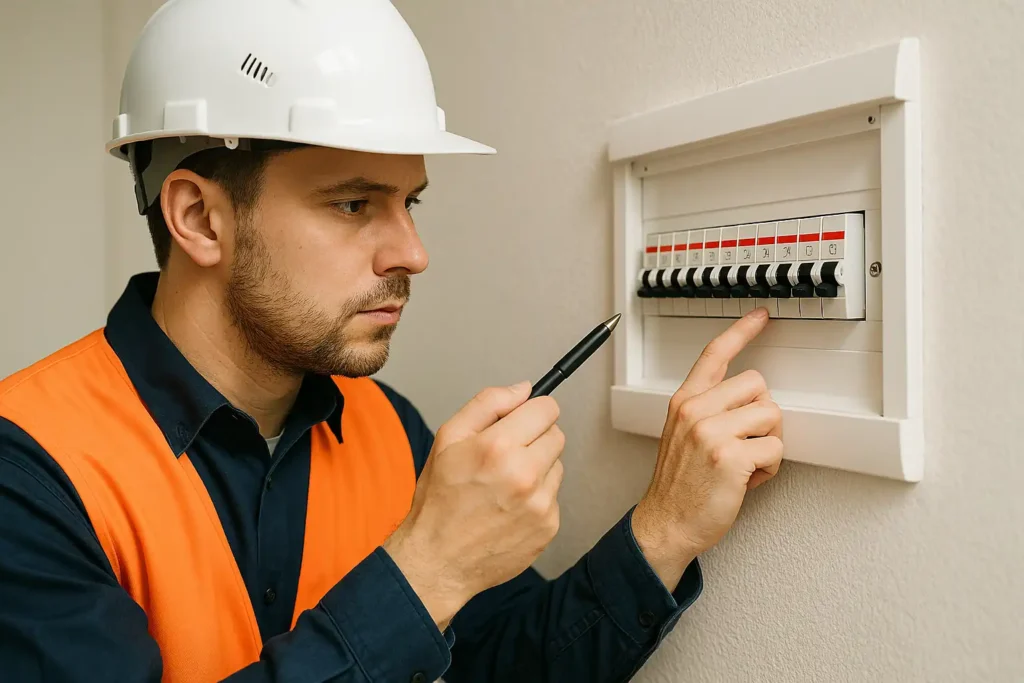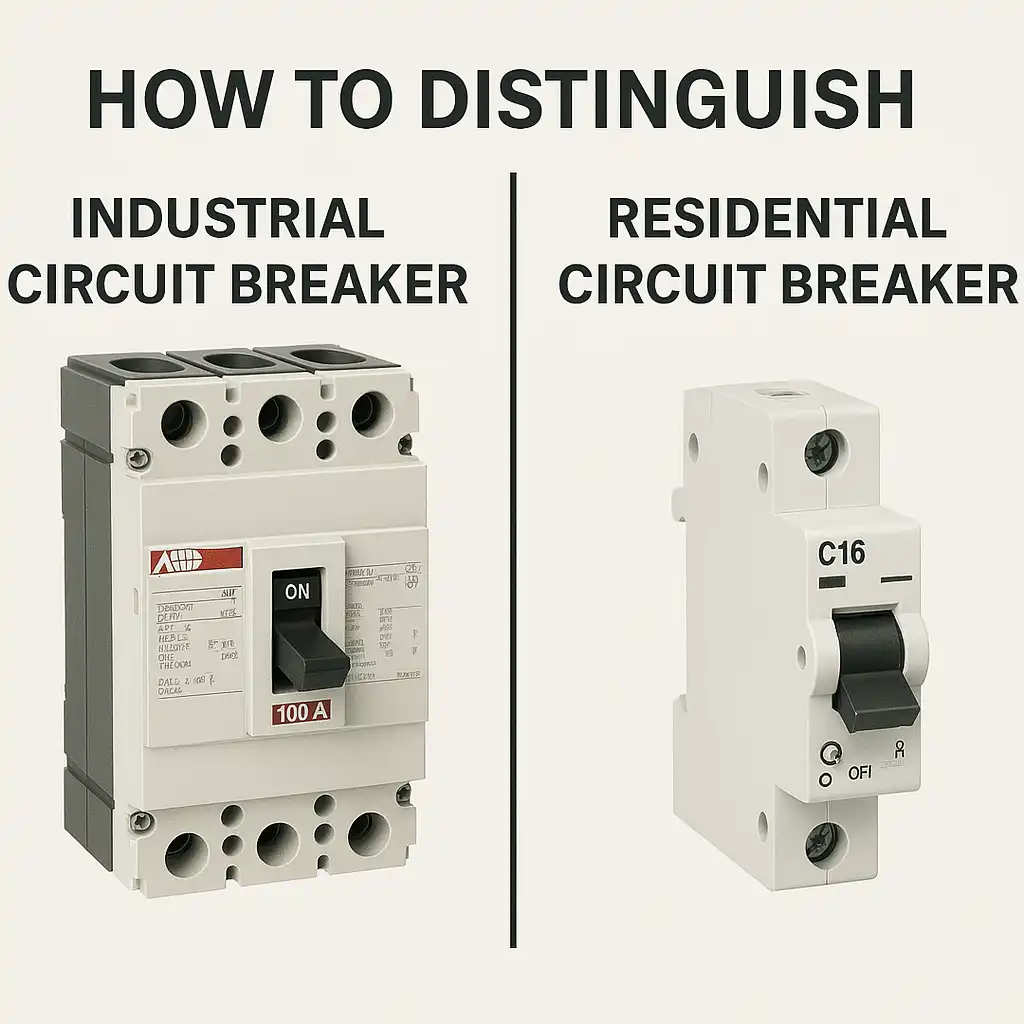Circuit breaker is an electrical switch used mainly to prevent electrical faults such as short circuit, overload, and overcurrent, and guard circuits against damage. Its main role is to cut off the current flow in a timely manner when the protective relay finds a fault so that circuits remain safe.
Although residential circuit breakers and industrial circuit breakers are the same in terms of function, they are different in that they have a significant difference in volume of electricity that they handle. Residential circuit breakers are presently widely used due to the fact that they can stop electrical faults from damaging electrical systems in households.
Different types of circuit breakers
There are five main types of residential circuit breakers that can be used to solve electrical problems.
- single pole circuit breaker
- double pole circuit breaker
- GFCI circuit breaker
- AFCI circuit breaker
- Dual function circuit breaker
In industries that require high voltage (usually between 1 and 72 kV), industrial circuit breakers are more complex and essential. There are several types of industrial circuit breakers:
- High voltage industrial circuit breaker
- Industrial SF6 high-voltage circuit breaker
- Low voltage industrial circuit breaker
- Magnetic industrial circuit breaker
- Medium voltage industrial circuit breaker
- Thermal magnetic industrial circuit breaker
Below, I will explain what industrial circuit breakers are, what residential circuit breakers are, and the differences between them
What is an industrial circuit breaker?
Characteristics and functions of industrial circuit breakers
- High current carrying capacity: Industrial circuit breakers are usually designed to handle currents of several thousand amperes, and thus they are perfectly adequate for heavy machines and high-power devices.
- High reliability: Failure of equipment in industrial manufacturing has serious consequences, and therefore industrial circuit breakers are usually highly reliable in order to ensure stable operation of the equipment.
- Multiple protection: Industrial circuit breakers typically integrate a number of protection functions, such as overload protection, short circuit protection, ground fault protection, etc., to handle more complex electrical faults.
Application scenarios of industrial circuit breakers
Industrial circuit breakers can handle quite high currents. Specifically applied to a part of the electrical system in industrial buildings. For example:
- Large manufacturing plants
- Power facilities
- Mining and Heavy Industry
- Industrial power station
What is a household circuit breaker?
The household circuit breakers are used to protect the home circuit from an overload or short circuit fault in the home electrical systems. It is an important equipment to protect the safety of household electricity.
The function of circuit breakers is only for low current loads of household design, which can meet the daily requirements of circuit for household appliances.
Characteristics and functions of household circuit breakers
- Low current carrying capacity: Domestic household circuit breakers possess a relatively low current carrying capacity, typically between 10 amperes and 100 amperes, for normal household electrical power usage.
- Easy operation: Household circuit breaker operation is relatively easy, and installation and maintenance are relatively easy.
- Simple protection functions: Their protection functions are typically overload protection and short circuit protection, offering protection for household electrical appliances.
Application scenarios of residential circuit breakers
Household circuit breakers are a more environmentally friendly alternative to fuses and improve the safety of household electrical systems. But the rated value he can withstand is relatively small, and the scenarios he is suitable for are:
- Home Circuit
- Small office space
The difference between industrial circuit breakers and household circuit breakers
| Comparison Dimension | Industrial Circuit Breaker | Household Circuit Breaker |
|---|---|---|
| Application Scenario | Factory, power plant, large equipment, etc. under high load, high temperature/high humidity/dusty environments | Residential, small commercial buildings, and stable dry environments |
| Rated Current Range | Hundreds of amps to thousands of amps (e.g., 100A-5000A) | Typically ≤63A (commonly 16A, 20A, 32A) |
| Breaking Capacity (Short Circuit) | ≥10kA (high-end models can reach 100kA) | Generally ≥4kA (commonly 6kA-10kA) |
| Protection Function | Overload, short circuit, undervoltage, undervoltage, and multiple protection functions | Basic overload and short circuit protection (some with leakage protection) |
| Construction & Materials | Metal shell, silver alloy contacts, complex protection systems | Plastic shell, copper contacts, simplified protection design |
| Installation & Maintenance | Requires professional installation, with insulation resistance testing and cleaning | Can be installed by oneself (e.g., 1P/2P models), requires function test to maintain proper operation |
| Operating Mode | Manual/automatic operation, supports remote control or automation systems | Manual operation, only local switch control |
| Service Life | Millions of mechanical operations, resistant to high-frequency switching | Thousands to tens of thousands of operations |
| Typical Models | KC3-H C63 series | KCP 10 series |
| Price Range | Approximately between $15 and $100 | Approximately between $5 and $30 |
FAQ
Is the price of industrial circuit breakers higher?
Industrial circuit breakers typically handle higher currents, have more protective functions, and have a longer lifespan, making them relatively expensive.
Can domestic circuit breakers be used in industry?
Residential circuit breakers have relatively low protection and load-bearing capacity, therefore they should not be used for industrial purposes. The remaining circuit breakers installed in industrial applications may not be able to withstand heavy loads and become potential hazards.
Summarize
According to the above analysis, the industrial circuit breakers are different from the household circuit breakers in current carrying capacity, safe protection function, installation environment, service life, and price.
The use of an appropriate circuit breaker according to different requirements will improve the safety and stability of the electrical system. I hope this article can help you better understand the differences between industrial circuit breakers and home/ household circuit breakers, and select the most suitable one.
Here are some information that you may have just been interested in:
Household solar energy storage battery
Comprehensive analysis of miniature circuit breakers
How to safely and efficiently connect circuit breakers




